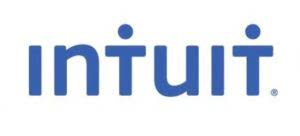
On the other hand, the proportionate consolidation method involves recognizing the investor’s share of the joint venture’s assets, liabilities, revenues, and expenses directly in its financial statements. Another important aspect is the treatment of variable consideration, which is common in oil and gas contracts. Variable consideration can include price adjustments based on market conditions, volume discounts, or performance bonuses. Companies must estimate the amount of variable consideration they expect to receive and include it in the transaction price. This estimation process involves significant judgment and can impact the timing and amount of revenue recognized.
What Are Successful-Efforts and Full-Cost Accounting?
I have come to thoroughly enjoy plant accounting and working in the oil & gas industry. It can be complex, but understanding the flow of the gas for each plant is essential for producing accurate and efficient results. I also enjoy working with our clients to ensure that the results match their expectations. No client is quite like the last and it keeps my day-to-day interesting and I look forward to each new challenge.
Solutions

The Council of Petroleum Accountants Societies (COPAS) establishes these guidelines, helping companies manage costs, revenues, and compliance efficiently. Given the industry’s reliance on joint ventures and shared expenses, COPAS standards maintain consistency in financial reporting. Depletion, depreciation, and amortization (DD&A) are essential accounting practices in the oil and gas industry, reflecting the gradual consumption of capital assets over time. Depletion specifically pertains to the allocation of the cost of natural resources, such as oil and gas reserves, over their productive life.
Accounting and Financial Reporting

Valuation of reserves involves not just the quantity but also the quality of the hydrocarbons. Factors such as the type of crude oil, its sulfur content, and the presence of natural gas liquids can significantly influence the economic value. Additionally, external factors like oil prices, technological advancements, and regulatory changes play a pivotal role in reserve valuation.

The volatile nature of oil prices and the significant capital investments required for exploration and production make this framework particularly essential. One of the primary considerations in joint venture accounting is QuickBooks Accountant the method of accounting to be used. The two most prevalent methods are the equity method and the proportionate consolidation method. Under the equity method, an investor recognizes its share of the joint venture’s net income or loss in its financial statements, reflecting its investment in the venture. This method is typically used when the investor has significant influence but not control over the joint venture.
- Given the sector’s volatility, companies use sophisticated models to anticipate future market conditions and potential risks.
- Accounting for oil and gas industry presents unique challenges that demand specialized knowledge and robust systems.
- The implementation of ASC 606 and IFRS 15 has added another layer of complexity to this process.
- The complexities of cost allocation in oil and gas underscore the need for expert guidance.
- If you have been an oil and gas operator for any length of time, it’s almost a guarantee that you have wells connected to working interest owners.
After connecting with us, we will craft a high-level plan and a clear or fixed monthly price model, so you can make an informed decision and compare costs clearly and quickly. Oil and gas companies want real-time access to their numbers and the ability to slice and dice information as needed. Through outsourced accounting, you are provided with seasoned professionals to interact with and manage the details for you. Our team can help transform the way your business accesses and uses financial data to make proactive and strategic decisions. Regulatory requirements mandate monitoring, reporting, and remediation efforts, all of which generate expenses that must be allocated correctly.
- Automated processes for data entry and reconciliation have minimized the chances of errors.
- Our approach to technology utilization in accounting, land management, and owner relations signifies a commitment to providing state-of-the-art services in the oil and gas industry.
- When taking oil and gas courses with COPAS, you can expect to gain the knowledge that you need to continue providing high-quality services to all of your clients.
- All information contained herein is for informational purposes only and is not intended to be and should not be treated as legal advice, investment advice or tax advice.
- Accurate reserves accounting is essential for financial reporting, valuation, and decision-making.
- We are committed to delivering the highest quality, lifelong, learning experience to accounting professionals in the oil and gas industry.
- More than 5,500 energy clients in the U.S. and across the globe — from small wildcatters to multinational energy giants — rely on Weaver’s financial professionals to help them plan and operate successfully.
And then you deduct this production from their reserves… and (hopefully) replace it with sufficient CapEx spending, linking the dollar amount of that spending to a specific amount of reserves. This task is made somewhat easier by making use of a software system that has been specifically customized to be used with oil and gas applications. Inconsistencies will be identified and pointed out by the software, making the accountant’s job much easier. It will sometimes be necessary to do reporting by exception or error exception assessments in order to compare costs over a given time frame, usually some number of months. If you’d like to learn more about oil and gas CPE for accountants or the courses on offer with COPAS, feel free to get in touch with us today. COPAS offers high-quality oil and gas accounting courses online that occur throughout the year.
Key Principles of SPE Accounting
Explore essential principles and practices in oil and gas accounting, from revenue recognition to asset impairment and taxation. Capitalization can increase asset values but may result in future impairment charges if exploration fails. Revenue recognition in the oil and gas industry is a complex process influenced by various factors, including the nature of contracts, the timing of delivery, and market conditions. The industry often deals with long-term https://kashabup.com/is-unearned-revenue-included-in-the-income/ contracts, which can span several years and involve multiple performance obligations.

- Oil and gas accounting presents unique challenges that distinguish it from traditional financial practices.
- Companies can come together to form a joint venture (with one or more partners) so as to share the risk of capital ventures, such as laying pipelines or drilling wells.
- It ensures transparency, aids in regulatory adherence, and provides stakeholders with reliable financial information.
- Companies should adopt a proactive approach to environmental liability accounting, following the guidance provided by IAS 37 or similar GAAP standards on provisions, contingent liabilities, and contingent assets.
- The standard requires a transition to IAS 36 for impairment testing once technical feasibility and commercial viability become apparent.
Given the sector’s volatility, companies use sophisticated models to anticipate future market conditions and potential risks. Techniques like sensitivity analysis and Monte Carlo simulations evaluate the financial impact of fluctuating oil prices, operational disruptions, and regulatory changes. These tools assist in accounting oil and gas creating financial plans that can withstand market uncertainties. There has been a growing emphasis on ESG factors within the oil and gas industry in recent years. ESG reporting goes beyond financial metrics to assess a company’s impact on the environment, its social responsibility, and adherence to governance standards.

